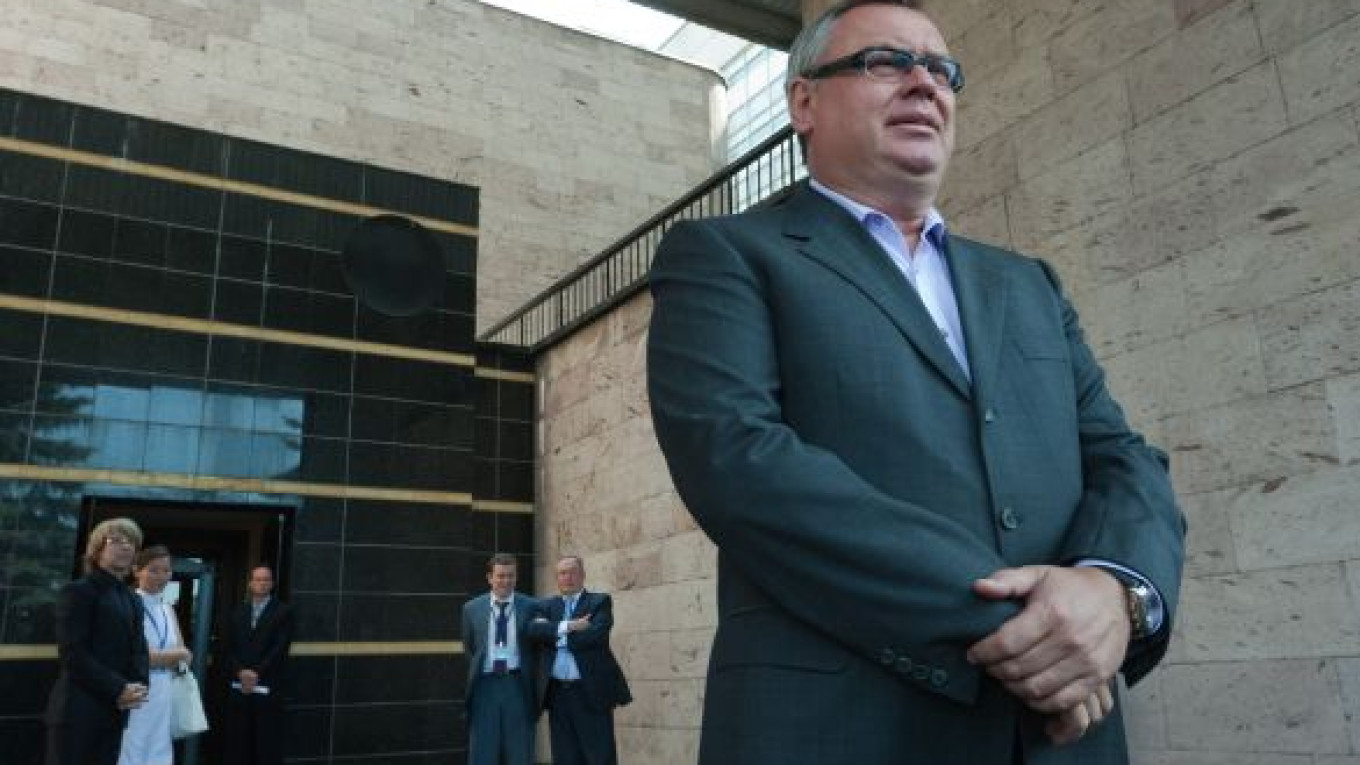VLADIVOSTOK —? Lending by Russian banks will have to slow or their capital strength could be dangerously eroded when it is difficult for them to raise new money, the head of the country's second-largest bank said Thursday.
Andrei Kostin, the chief executive officer of VTB, warned that banks could need more capital next year but there were limited options for raising cash.
"It [a rapid lending growth] will require — sooner or later — more capital for the banks. And there is no access to capital markets, and that might be a problem," Kostin told Reuters Television in an interview on the sidelines of the Asia-Pacific Economic Cooperation summit.
Credit rating agency Standard & Poor's also warned last month that Russian banks would need to limit lending growth this year to reduce risks of a further decline in the banking system's capital level.
Banks are generally required to keep a minimum capital adequacy ratio, based on a percentage of a lender's risk-weighted assets, to absorb possible shocks and support lending.
The Central Bank requires a minimum capital adequacy ratio of 10 percent and banks can lose their licenses if they do not meet this requirement.
VTB has begun to rein in lending growth in some areas.
The bank is trying "not to expand too fast" due to possible problems with export-oriented companies that might suffer weak demand from a slowdown in Europe, Kostin said.
"We already see that the [commodity] prices are stagnating or going down, and demand is not very strong … So we are very cautious now in enlarging any loans to the clients," Kostin said. He did not name any companies or sectors.
RusAl, the world's largest aluminum producer, for example, will cut capacity 3 percent by the year-end as it grapples with weak prices and rising power costs.
Rapid-lending growth has already eaten up almost 5 percentage points of the banking system's overall capital since the start of 2011, bringing it to just above 13 percent as of Aug. 1.
VTB's capital adequacy ratio stood at 11.3 percent as of Aug. 1, versus 13 percent at closest rival Sberbank.
By the end of July, corporate loans were up 7.2 percent while retail lending rose 21.8 percent, and the overall banking system's capital grew by only 6.3 percent since the start of the year, Central Bank data showed.
Kostin said the domestic banking sector was not at risk from the European debt crisis because it has almost no exposure to the region's debt, but it could face a problem from falling capital.
"Not now, but maybe next year [the problem may arise]. The banking sector is developing quite quickly, lending growth is substantial," Kostin said.
But with equity markets currently not offering attractive prices for share offerings to boost capital, banks are having to look to the bond markets instead for money.
State-controlled VTB raised $1 billion in a perpetual bond this summer, the first deal of its kind in the country. Since the start of 2012, Russian borrowers have raised more than $31 billion in eurobond deals, more than in the whole of last year.
Related articles:
A Message from The Moscow Times:
Dear readers,
We are facing unprecedented challenges. Russia's Prosecutor General's Office has designated The Moscow Times as an "undesirable" organization, criminalizing our work and putting our staff at risk of prosecution. This follows our earlier unjust labeling as a "foreign agent."
These actions are direct attempts to silence independent journalism in Russia. The authorities claim our work "discredits the decisions of the Russian leadership." We see things differently: we strive to provide accurate, unbiased reporting on Russia.
We, the journalists of The Moscow Times, refuse to be silenced. But to continue our work, we need your help.
Your support, no matter how small, makes a world of difference. If you can, please support us monthly starting from just $2. It's quick to set up, and every contribution makes a significant impact.
By supporting The Moscow Times, you're defending open, independent journalism in the face of repression. Thank you for standing with us.
Remind me later.


